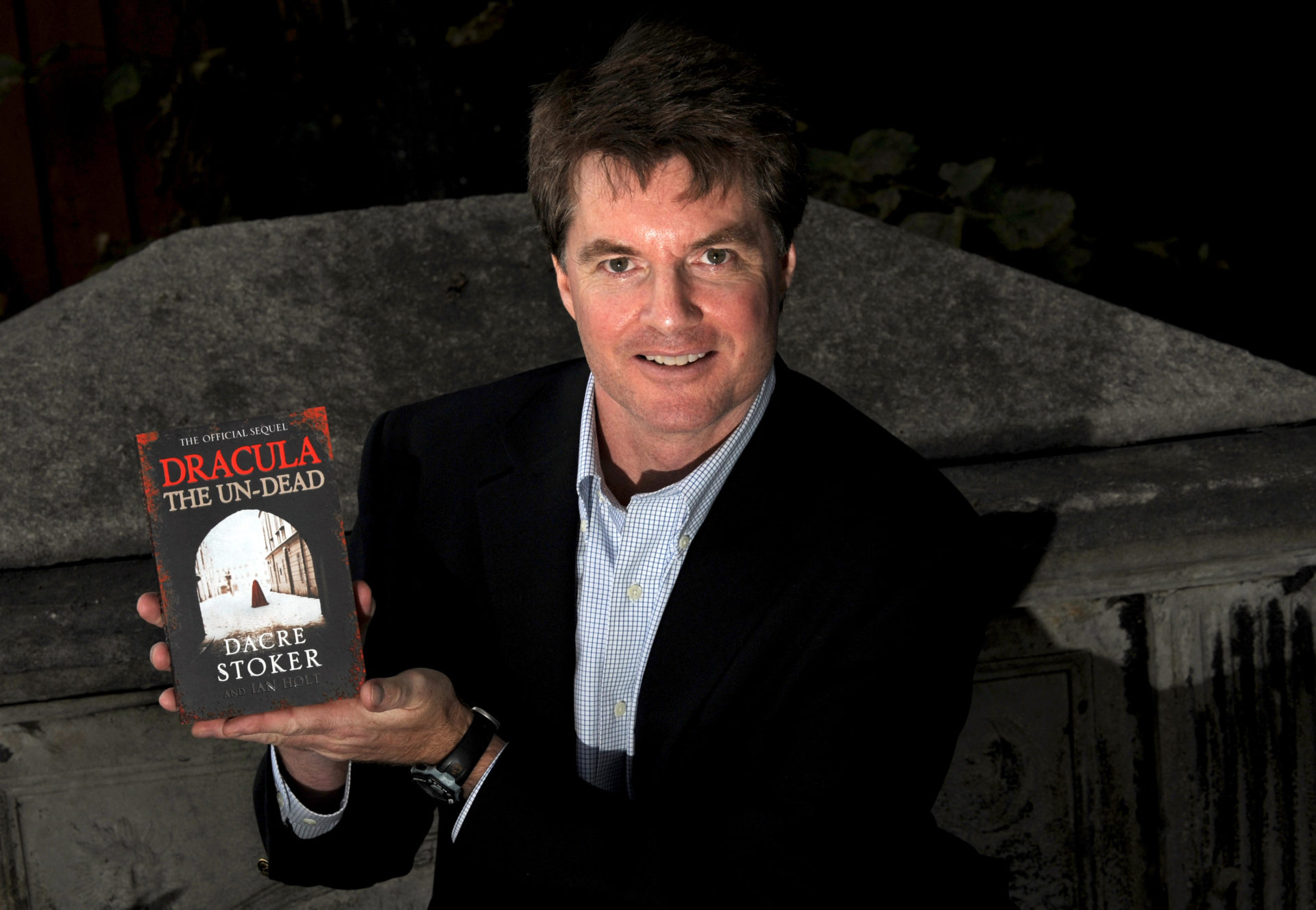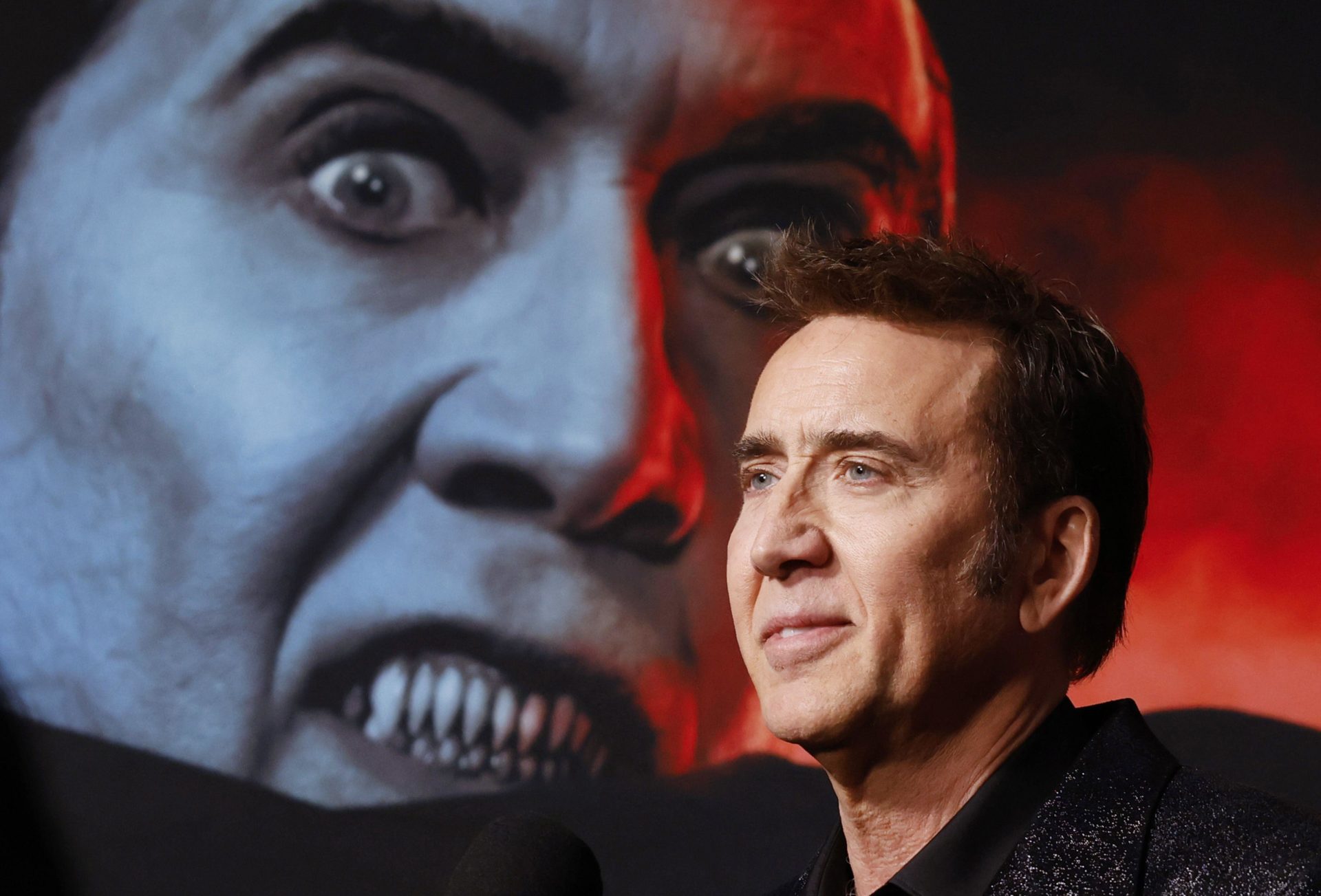While Dracula is now one of the most iconic works of horror fiction, in Bram Stoker’s own lifetime horror “took the backseat”.
That’s according to Canadian writer and Bram Stoker’s great grandnephew Dacre Stoker, who was in Dublin this weekend to mark the annual Bram Stoker Festival in Dublin.
He told Talking History with Patrick Geoghan he was presenting 30 pages of Bram Stoker’s autobiography “to help people understand what went into the research and the writing of Dracula”.
“We pull back the curtain, and we see what was Bram thinking about when he started writing in 1890,” he said.
“Many people know the American character Quincy Morris evolved out of Bram Stoker and Henry Irving's relationship with Buffalo Bill Cody, and you could see that happen on these pages.
“He had the guy going over to Transylvania, in the middle of the story, but he didn’t end up doing that in the finished version.
“It’s an evolution over 125 pages and I’ve brought the best 30.”
'The novel transcended literature'
Bram Stoker didn’t write the first vampire novel himself, but his great grandnephew said he definitely “refined” the myths of the 17th and 18th centuries.
“He packaged it in a way that this novel really transcended literature - it's gone on to stage, on to screen, on to Halloween costumes products,” he said.
“[Vampires and immortality] mean different things to different people worldwide and that’s why it’s so enduring.
“Dracula is that gift that keeps on giving because we just don't fully understand the whole premise for it.”
 Author Dacre Stoker with a copy of his book 'Dracula: The Un-Dead', a Dracula sequel. Image: PA Images / Alamy Stock Photo
Author Dacre Stoker with a copy of his book 'Dracula: The Un-Dead', a Dracula sequel. Image: PA Images / Alamy Stock PhotoDespite its enduring popularity, Bram Stoker’s novel did not gain worldwide recognition in his own life, and he was better known as a theatre critic and the personal assistant of actor Sir Henry Irving.
Mr Stoker said horror overall took a long time to gain the same respect as other genres.
“It's sort of frustrating to think that horror has taken a backseat for quite a while,” he said.
“1962, I think, was the date when Oxford University deemed it a classic - when that happened immediately, the scholarly world took it seriously and started using it for the basis for people to write their master's thesis or doctor’s thesis.
“By then Dracula had already taken off in the film world and that's another way of an acknowledgement of its credibility in popular culture.”
 Nicolas Cage arrives on the red carpet at the premiere of "Renfield", where he plays Dracula, 28/04/2023. Image: UPI/Alamy Live News
Nicolas Cage arrives on the red carpet at the premiere of "Renfield", where he plays Dracula, 28/04/2023. Image: UPI/Alamy Live NewsFilms like Christoper Lee’s played a big part in boosting Dracula’s credibility, according to Mr Stoker.
“One hand helps the other - the literature side of it helps it get turned into films and popular culture gets people start going back to the book and reading it,” he said.
"I've been lucky enough to write a prequel to it myself.
“There's over 700 movies with a Dracula figure in it - it does go a little bit crazy with vampire sparkle with Stephenie Meyer and everything, but Bram Stoker started here in Dublin.”
Listen back here:









